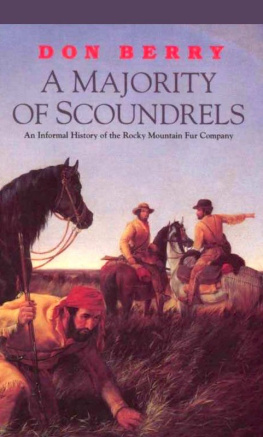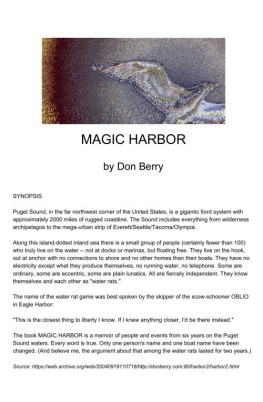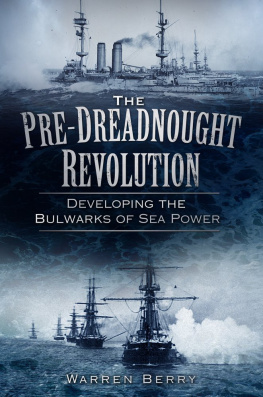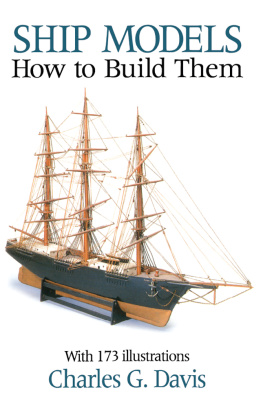Don Berry - To Build a Ship
Here you can read online Don Berry - To Build a Ship full text of the book (entire story) in english for free. Download pdf and epub, get meaning, cover and reviews about this ebook. year: 1963, publisher: Oregon State University Press, genre: Detective and thriller. Description of the work, (preface) as well as reviews are available. Best literature library LitArk.com created for fans of good reading and offers a wide selection of genres:
Romance novel
Science fiction
Adventure
Detective
Science
History
Home and family
Prose
Art
Politics
Computer
Non-fiction
Religion
Business
Children
Humor
Choose a favorite category and find really read worthwhile books. Enjoy immersion in the world of imagination, feel the emotions of the characters or learn something new for yourself, make an fascinating discovery.

- Book:To Build a Ship
- Author:
- Publisher:Oregon State University Press
- Genre:
- Year:1963
- Rating:4 / 5
- Favourites:Add to favourites
- Your mark:
- 80
- 1
- 2
- 3
- 4
- 5
To Build a Ship: summary, description and annotation
We offer to read an annotation, description, summary or preface (depends on what the author of the book "To Build a Ship" wrote himself). If you haven't found the necessary information about the book — write in the comments, we will try to find it.
To Build a Ship — read online for free the complete book (whole text) full work
Below is the text of the book, divided by pages. System saving the place of the last page read, allows you to conveniently read the book "To Build a Ship" online for free, without having to search again every time where you left off. Put a bookmark, and you can go to the page where you finished reading at any time.
Font size:
Interval:
Bookmark:
To Build A Ship
Don Berry
1963
To
Hone Papita Raukura Hotere
and Aaron Judah
in memory of three waterfalls and a pair of shoes
There is a pleasure sure
In being mad which none but madmen know
Dryden
ONE
The first thing I heard about the Bay was that there was a man down there who lived in a tree. It bothered me, perhaps unreasonably. It wasn't the first time I had ever heard of men living in trees, of course. There were whole tribes of them in Africa, families and everything, a kind of half-monkey, half-man that lived in trees and swung around from branch to branch. But that was different; mainly it was thousands and thousands of miles away, so it didn't worry me. But this man was right here in the Oregon Territory of the United States of America. Not a hundred miles away, where I could go and see for myself. It didn't seem decent. I was in my early twenties at the time and had a lot of illusions about the human race I have since lost.
" Well what kind of man is he?" I asked.
Willy Cooper, who was having his wheat ground at the same time as I, said, "Just a man, Ben. You know, like you and me."
" A white man."
" So."
" Well, what the hell's he eat, Willy? I mean, like pine cones and roots and things?"
" Hell, Ben, I don't know." Willy shrugged, because he didn't really care. It made me slightly embarrassed that I should care so much. The first image I'd gotten in my head was of this fellow hanging upside down by his knees from a branch, looking all around. I think that was what was so hard.
In one last attempt to get some information that would make this thing clear in my head I asked him, "What kind of a tree?"
"Cedar, I hear. Lots of cedar down there, you know, Ben. On the coast I mean."
I turned it over in my mind. It didn't help. Didn't matter how I looked at it, cedar, pine, or fir, no white man had a right to be hanging by his knees in a tree in the Year of Our Lord eighteen hundred and fifty-one. It wasn't right.
So it was this idle conversation in the Oregon City Mill that started me thinking serious about the Bay, decided me to go down there. I had only been in the Oregon country for about a year, had not taken out a land claim as yet, and was still working harvest for other fellows to see me through the next winter. No woman, no relatives. Free as a bird and twice as lonely.
I didn't go immediately, of course, as I hadn't made up enough reasons. No sane man goes roaring down to a new and wild country from civilization just because he hears there's a man living in a tree. Or rather, no sane man admits it right out, even to himself. But I've found that you generally make up your mind to go someplace and then start inventing all the good reasons for it. In the case of the Bay it wasn't too hard, as there was not much information about it. If you wanted to know you had to go see. During the winter of '51-'52 I stewed and fretted around and picked up enough justification that by spring I was jumpy as a cricket to get down there and see it with my own personal eyes.
From the bits of information I could pick up, it seemed to be a sort of Terrestrial Paradise. A lovely little bay, the entrance sheltered by a sandbar so the water never got too rough, even during the coastal storms.
Walled in by mountains on all sides. The only way in was by Indian trail across the Coast Range from the Willamette Valley, or the beach running south from Astoria. The richest land in the whole of the Oregon Territory you could plant flies and harvest eagles and so forth. No families as yet, perhaps a dozen men batching it, like myself. In time families would come down, but the women were always reluctant to take their children to a place where there wasn't any school. And you know how it is with reluctant women. But in the meantime the first-rate land was there, open for Donation Land Claims like the rest of the Territory. All you had to do was tell the government which 320 acres of Eden suited you, and it was yours.
In short, a nice private place where a man could build up a future for himself in grand style. The enormous isolation I regarded as an assurance of privacy, as I was looking for advantages. In any case it would pose no serious problems, as I heard the tiny settlement had connections with a firm of Boston merchants. Each year they sent in ships,. loaded with everything a man might need, and took off the Bay's produce at high prices. It seemed logical, considering what a marvelous port it was, particularly for the rough and stormy Oregon coast. And it stood to reason that there must be someplace on the face of the earth where a man was given a fair shake; it was just a question of finding it.
The more I thought about it, the more it seemed inevitable that the Bay would be the future New York of the Pacific Coast. Oregon City and Portland, inland on the Willamette, were too far from the sea. Astoria meant crossing the terrible Columbia bar and fronting the vicious river mouth itself; the litter of broken ships scattered up and down the coast testified to that. It was clear to me that the site of the future great metropolis of the Oregon Territory had not yet been discovered.
This was my own personal chance to get in at the beginning of something really big. It was obvious that in a few years time every acre of that country would be worth a small fortune. And you may be sure that I was well decided to ask more than twenty-four dollars in beads for my share. As with most Americans who have studied history, one of my deepest regrets is that I did not own Manhattan when the time came that those Dutchmen wanted to buy it. And here was the New Manhattan, the Western Manhattan, free for the taking.
By the spring of '52, then, I was terrified that the Others would get there first. When somebody mentioned the Bay in conversation I stiffened, and shut my mouth, saying nothing and appearing uninterested. When somebody didn't mention it, it scared me worse, as it was clear they were plotting to go down there in secret. It was, in retrospect, a fairly futile way to pass the winter, working myself up into the terrible state of nerves like that. But Oregon winters are such that there is not a great deal else to do. So I built imaginary Manhattans at considerable length, went over every foot of the journey in my mind a hundred times or better, prepared my pack and unprepared it, counted my single frying pan a dozen times, just to be sure. It always came out One.
In the last pant of April, 1852, I started out, heading south down the Willamette Valley in order to divert suspicion, looking for the bail that was reported to lead across the Coast Range from the territory of the Kalapuya Indians. Feeling very spunky, I can tell you, and singing a little song of my own devising:
With my pack upon my backAnd my frying pan in my hand
I am bound for the Tillamook land.
Intending to profit fully from this unparalleled opportunity to own the new Manhattan. And intending to see the man that lived in a tree.
The Indians had several methods of marking a trail, all of which were useless. The most common was to make two perpendicular cuts in the bark of a tree, about an inch apart. Then a horizontal out at the top, and the strip of bark, sometimes a foot long, was peeled downward and left hanging. It was very clearly not the work of nature. It seemed unnatural to the elk, too. The bulls, either enraged or curious about this phenomenon, immediately scraped it off with their antlers, leaving an irregular patch of rubbed bark no different from any of the others, which were numerous.
The second method was to insert a stick in a slit of bark, pointing in the direction of the trail. This served very well, one time. The next Indian that came along the trail had a tendency to pull the stick out of the bark and examine it carefully to make sure it was indeed an artificial sign. Then he threw it off into the brush and went on. It is no wonder one often came upon Indians wandering around aimlessly. It was not due to lack of industry, as the Methodists claimed. They were simply following Indian trails, which is to say, they were lost. It is their privilege, as they were here first.
Next pageFont size:
Interval:
Bookmark:
Similar books «To Build a Ship»
Look at similar books to To Build a Ship. We have selected literature similar in name and meaning in the hope of providing readers with more options to find new, interesting, not yet read works.
Discussion, reviews of the book To Build a Ship and just readers' own opinions. Leave your comments, write what you think about the work, its meaning or the main characters. Specify what exactly you liked and what you didn't like, and why you think so.












